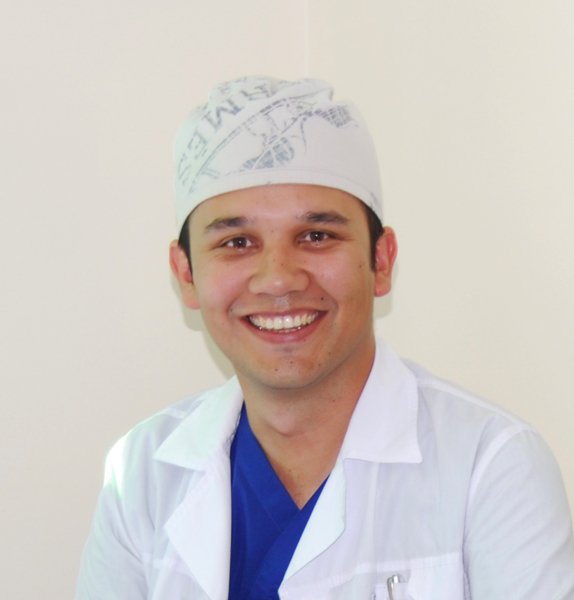Alumnus Bek Tashbayev has a passion for IT in medicine
Bek’s journey from a medical education in Uzbekistan to the Master's programme in Health Informatics at KI, and then on to Norway, was far from etched in stone – especially given he did not acquire his first computer, a Pentium I, in 2006, just four years prior to coming to KI.
Name: Bek Tashbayev
KI programme: Joint Master's Programme in Health Informatics
Graduation year: 2012

Bridging medicine and technology
KI Alumnus Bek Tashbayev says he was destined to become a doctor. “Everyone in my family was a physician, so pursuing medicine was almost second nature”, he admits, but due to his passion for IT, he has followed his own path.
While Bek followed his family's footsteps, he developed a curiosity about information technology (IT) advancements and how they might impact medicine in the future. In addition, he did not like writing medical records by hand and thought computers would eliminate this need. With this question in mind, he examined the growing speciality of IT in medicine. However, in Uzbekistan in the post-Soviet time, IT was not widely available. Due to lack of resources, Bek had no opportunity to develop IT skills, but remained instilled with a curiosity that wouldn’t subside.
During his last year of medical school, Bek was accepted to the Health Informatics programme and, upon graduation, came directly to KI. During these intense two years, Bek was an engaged student. Quite often after a class, he would contact the lecturer to express his gratitude and interest. He would point out specific aspects that were interesting and beneficial to him, and in certain cases, even offer his help with their projects.
In his second semester, his actions paid off and he received an offer to work on an international project on Electronic Health Records (HER) at the Karolinska University Hospital. The project, which took him to Africa, gave him a truly global perspective and facilitated future opportunities. “The experience I gained during my years at KI paved the way to everything I achieved so far. The combination of skill sets I possess from both the medical profession and health informatics training was definitely a big plus.”
Director of Development and PhD student
After graduation, Bek returned to Uzbekistan to pursue a specialisation in ophthalmology, and then continued his training in India where he focused on eye surgery, before eventually starting a PhD at the University of Oslo.
For the past several years, Bek has balanced roles as the Director of Development and Ophthalmologist at The Norwegian Institute for Eye Health, and as a PhD candidate, University of Oslo. There, Bek combined clinical work and research. “Depending on the schedule, I would see patients at the clinic and work on my PhD project at the same time. We were trying to find diagnostic biomarkers of xerostomia (dry mouth) and dry eye disease by analysing clinical data and tear/saliva samples from hundreds of patients. Dry eye disease has negative impacts on quality of life of patients, and accurate diagnosis remains a challenge due to the multifactorial nature of the disease.”
As Director of Development, his main responsibilities included designing new IT solutions that increase efficiency at the clinic, which drew heavily on his knowledge from KI’s Health Informatics programme. Reflecting on his experiences, “It is impossible to imagine modern medicine without health informatics tools. Having skills in this area gives one the competitive edge in all aspects of medicine. I feel so lucky to receive an education and degree from KI.”
As his PhD studies will soon come to a close, Bek has relocated back to Sweden and is taking a position as resident Physician in Ophthalmology in Region Sörmland. Ultimately, he aims to return to Stockholm and work as an ophthalmologist and researcher at KI. “St. Erik’s Eye Hospital is one of the leading eye hospitals in Europe and its affiliation to KI enables clinicians interested in research to combine both high-quality clinical work and research. I hope I will get this opportunity.”
When asked what drives him, Bek humbly replies: “Having an impact to eliminate blindness worldwide through expertise, research and leadership. And being able to help reduce suffering in my patients, today and in the future.”
In the event of any free time, Bek is an avid reader, favouring biographies of inspiring leaders. Certainly, he has paved his own path of inspiration for future doctors and health informaticians alike.
What advice do you have for students?
"Life is short. Don't settle for anything less than you deserve."
